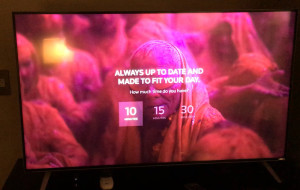Geopolitical futurist Parag Khanna foresees a world in which megacities, supply chains and connective technologies redraw the map away from states and borders. He sees geography and connectivity fusing into what he calls “connectography.” He goes so far as to say “connectivity, not sovereignty, has become the organizing principle of the human species.”
Mr. Khanna predicts “we will build more infrastructure in the next 40 years, than we have in the past 4,000 years.” And “by 2030, more than two thirds of the world’s population will live in cities.
I really liked the part about redrawing the map away from “states and borders.” I was born in Missouri and have lived here most of my life but it’s not something I brag about. I have no pride in this chunk of land or the people who live here for that matter. And they — we — are probably no better or worse than people who live in other “states.” It’s just that the idea of thinking of oneself as a “Missourian” or a “Southerner” or by any other geographic designation seems archaic.
I have much more in common with the people I’ve connected with online than the people in my neighborhood or city. Shame on me, maybe, but there it is. It’s connections I’ve come to value, not geography. This TED Talk made me hopeful. If you watch it, I hope it does the same for you.

 This is where I was going to try to describe how “apps for the TV” delivers a fundamentally different experience than the current TV model but I don’t think I’m up to the task. I know it’s a cliche but you’ll just have to play with for a bit get it. But I do have one example.
This is where I was going to try to describe how “apps for the TV” delivers a fundamentally different experience than the current TV model but I don’t think I’m up to the task. I know it’s a cliche but you’ll just have to play with for a bit get it. But I do have one example.